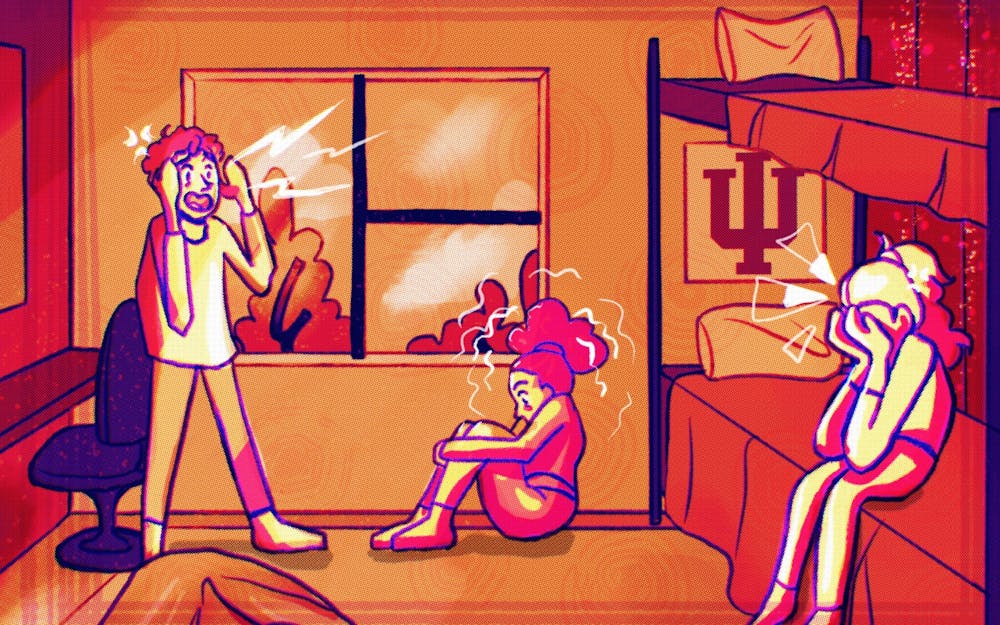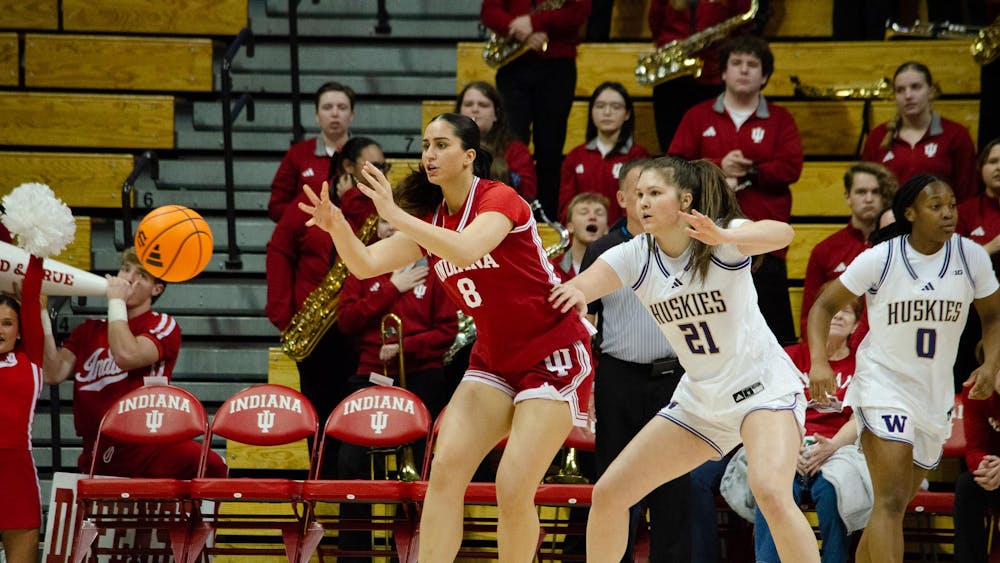If you are anything like me, you might have had some mental breakdowns that included making emotional phone calls home, overthinking about what your semester might shake out to look like or preparing to hunker down for late nights of studying.
Data from U.S. News reports IU’s Bloomington campus to have an undergraduate fall 2020 enrollment of 32,986. Simple math shows that for one Counseling and Psychological Services employee, there are roughly 1,000 undergraduate students.
Instead of making these logistics practical or putting emphasis on hiring more staff in a labor market with few options in Bloomington, I argue that CAPS should utilize task shifting models by distributing work to graduate students in order to address the one to 1,000 ratio. Students with background in social service education might have just as valuable tools to help each other instead of needing a trained professional.
I am worried after sitting in my public health program planning class this week. The professor warned us that IU Student Health currently faces widespread staffing shortages.
[Related: IU mental health initiative to make resources more accessible, well-known]
The IU services offered at CAPS include individual, group and couples counseling, workshops, psychiatric care, sexual assault crisis services and nutritional consultations, among others. CAPS has 32 searchable faculty and staff in its unit directory, including office staff, therapists, interns, social workers and other positions.
In addition to the staff at CAPS, students have 24/7 access to a national emergency number if they possess a working phone. The national helpline suicide and crisis lifeline recently changed from the Substance Abuse and Mental Services Administrations 1-800 hotline to just three digits— 988.
Every student can have their independent ideas for a nationally reachable three-digit number. Still, I argue they changed the number because there’s a need for professionals at the fingertips of the younger generations. Even though many young kids fear dialing the police at 911, will they be more comfortable dialing 988 in a moment’s crisis?
The more students CAPS can sift through and accommodate, the happier and healthier the IU campus will become. The U.K. National Health Service provides five steps to mental wellbeing. The basic steps include building connections, finding additional ways to occupy your time and trying your best to live in the moment. Many more people on this campus than those working at CAPS can address fellow undergraduate students to increase general wellbeing.
Additionally, CAPS must advocate their available resources through social media and poster campaigns to students campuswide. There are groups for many health disciplines ranging from eating disorder recovery to safe spaces for queer students to collaborate on challenges facing the population in Bloomington.
[Related: OPINION: The COVID-19 pandemic is ending, but the mental health issues it caused aren't]
While I have never tried to call CAPS, I know many individuals who reach their line at 812-855-5711. My peers emphasize the challenges of finding an available time for CAPS within everyone’s individual busy lives.
The final anecdote I want to make is that CAPS must be ready before a crisis occurs in the lives of our students. If they only prepare to help those in an emergency, as a collective campus, is this achieving the best possible healthcare outcome?
The answer is no. I confidently speak on behalf of all undergraduate IU students that we feel most successful when resources are available before they become a necessity. To all the students who experience mental health crises on our campus, know that many students are in a similar boat struggling to receive care.
CAPS needs to restructure for the health of the community. The lack of availability and sustained use of the resources by students shows the immediacy of this demand. In the meantime, don't hesitate to seek care and help even if it's difficult to do mentally and logistically.
If you or someone you know need support, counseling is available through IU Counseling and Psychological Services. The CAPS crisis line at 812-855-5711 is available 24/7.
John Hultquist (he/him) is a senior studying community health with minors in urban planning/community development, global health promotion and personal well-being.






